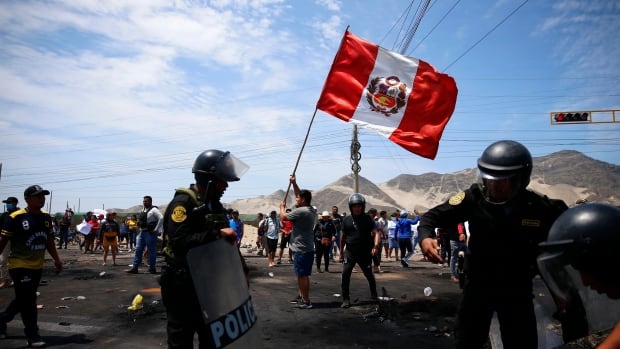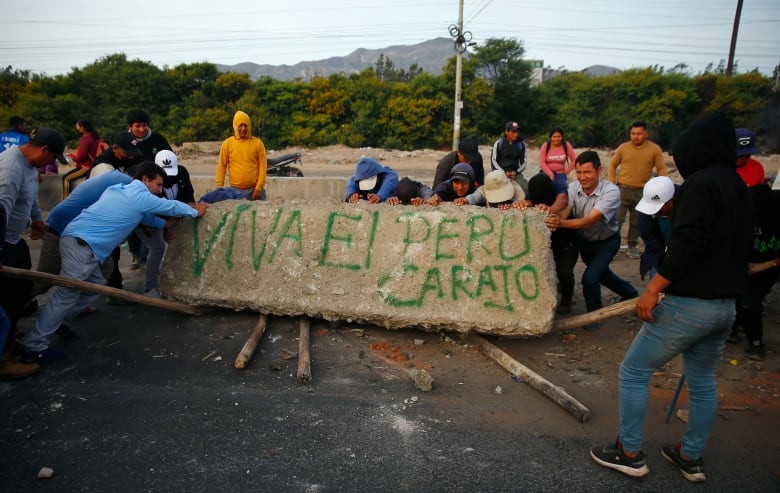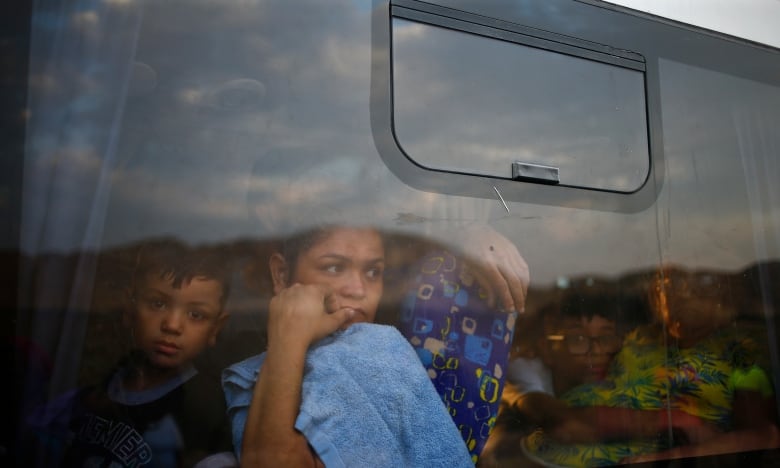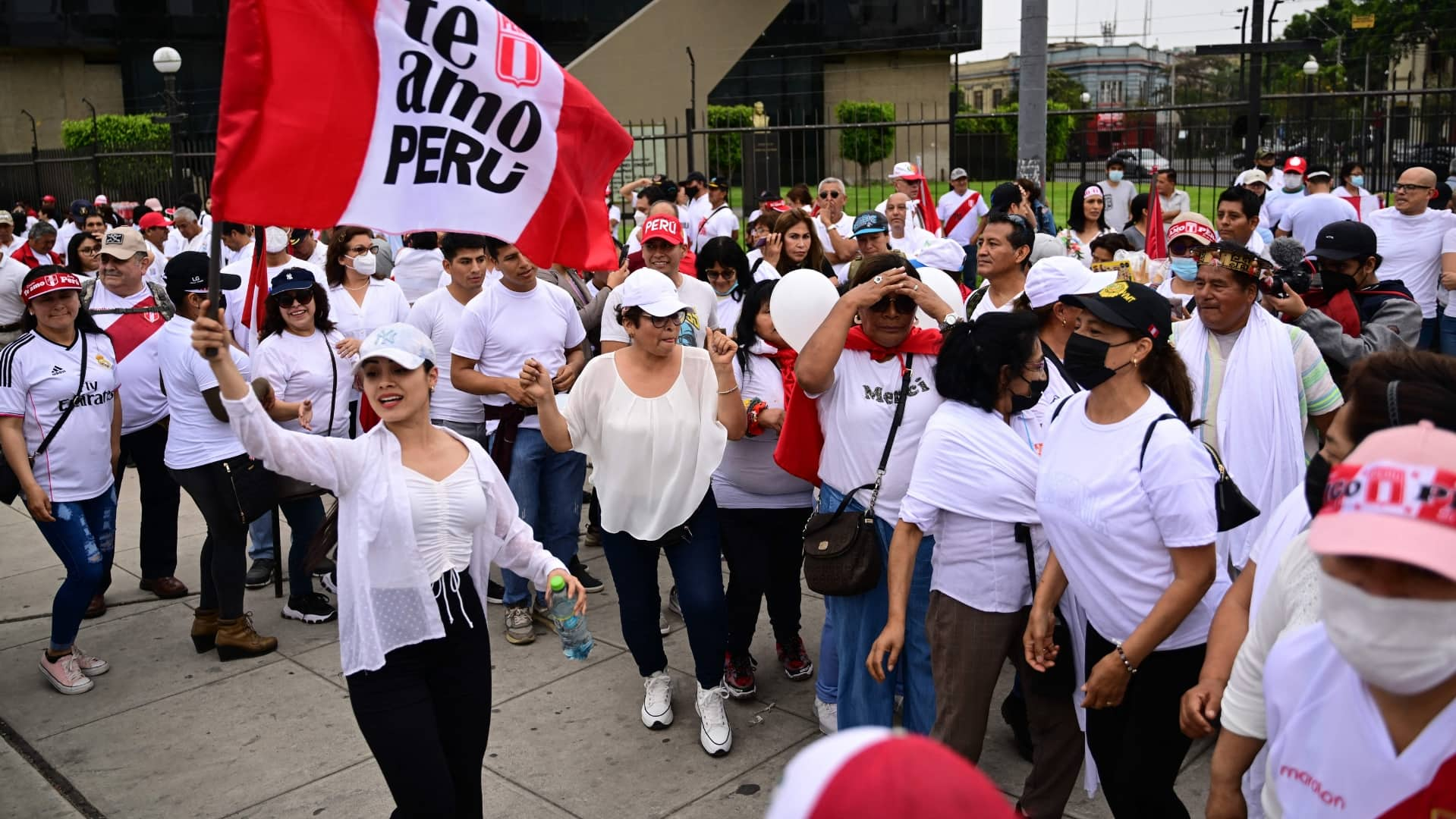
Carolina Medina arrived in Peru on Dec. 3. But the Canadian tourist would soon be caught in the country’s political crossfire, as just four days later, its president’s removal from office ignited a wave of protests across the South American nation.
Medina, who is from Mississauga, Ont., told CBC News in a direct message that she and a group of other Canadians are currently stuck in the southwestern city of Arequipa.
Some tourists have tried to cross borders into different cities — and even into neighbouring Bolivia — but road blockades by protesters have made it difficult to do so without the threat of violence or getting stuck, she said.
“Other tourists have also experienced getting robbed on the road, and there have been many looting [incidents] happening within the city near our hotel,” she said.
“All of us just want to get home in time for Christmas with our families.”
Medina, who is among thousands of Canadians currently in Peru, has criticized Ottawa’s response to what she says is an increasingly dangerous situation.
Some have tried to leave the country since the protests began, but violent confrontations have crippled travel routes and airports.
Ottawa ‘actively engaged,’ but tourist disagrees
There are just over 3,900 Canadians currently in Peru, but that number accounts only for those who are officially registered with the Registration of Canadians Abroad (ROCA) database, a voluntary service.
The Canadian government updated its travel advisory this week urging Canadians to exercise a high degree of caution in travel to Peru.
Airports in such cities as Arequipa, Ayacucho and Juliaca are among those that have suspended travel until further notice.

Jason Kung, a spokesperson for Global Affairs Canada, told CBC News in an emailed statement that consular officials are “actively engaged with the situation in Peru and continue to monitor the situation closely.” No further details were given.
Kung said the government is advising Canadians in Peru to avoid areas where demonstrations are taking place, not cross road blockades, even if they’re unattended, and follow the instructions of local authorities — including obeying the curfew that was implemented in 15 Peruvian provinces this week.
The government is also asking Canadians in Peru to contact Canada’s Emergency Watch and Response Centre, and to register with ROCA.
Unrest and violence have exploded on the streets of Peru in response to the removal of former president Pedro Castillo.
But Medina said she thinks the Canadian government is failing citizens who have yet to be evacuated from violent circumstances.
She said that upon contacting the Canadian Embassy in Peru, she was told only to stay put. She had previously spoken with tourists from Germany and Britain who were evacuated by their governments.
It echoes a similar grievance from March 2020, when Canadians encountered difficulties leaving Peru during its COVID-19 lockdown as they watched other citizens receive assistance.
“We received an email that they have four flights leaving from [Cusco], but they are prioritizing different groups of tourists, so no one really knows when we will be able to fly home,” Medina said.
Jennifer Korver and Heather Vitkuske were among other Canadians stuck in Arequipa.
“We feel the safest when we’re at the hotel and we don’t go very far,” Korver told CBC News in an interview earlier this week.
Vitkuske said the two miss their families. “It’s hard coping with the uncertainty.”
New leader pushes back on calls to resign
Castillo was ousted and arrested on Dec. 7 after he attempted to dissolve Peru’s congress and announced that he would rule by decree. The left-wing political leader was impeached for “permanent moral incapacity,” and arrested on charges of rebellion.
His successor, former vice-president Dina Boluarte, characterized Castillo’s actions as a coup attempt, though some have rejected that description.

At least 20 people have died during the protests in response to Castillo’s removal from office, with 500 civilians and security forces among the injured. The protesters are calling for Boluarte’s resignation and Castillo’s freedom.
But Boluarte rejected calls to resign on Saturday. During a news conference, she criticized the country’s congress for not voting for her proposal to move up Peru’s scheduled general elections from 2026 to 2023.
Peru has a long history of presidential corruption, but the Andean country has especially been embattled in the last seven years, as various political crises and a high turnover rate between presidents have crippled congress.
